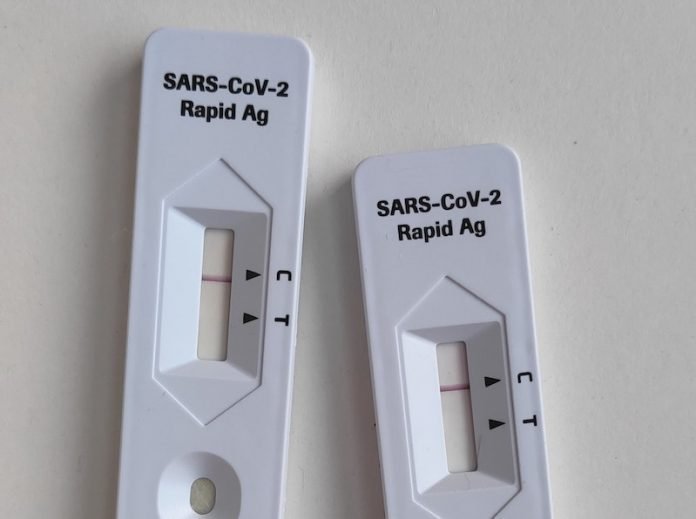
In a new study from Johns Hopkins Medicine, researchers found that a rapid antigen test for SARS-CoV-2—the virus that causes COVID-19—proved highly accurate when compared to the established standard virus detection method: the polymerase chain reaction (PCR).
This suggests that rapid antigen testing can be confidently used to screen for children and adolescents who are infected but not showing symptoms.
Such screening could help keep classrooms safer when students attend in person.
The study showed that the rapid antigen test was high in sensitivity (ability to identify people for whom the PCR test would detect a SARS-CoV-2 infection) at 92.7% for all participants and specificity (ability to identify people for whom the PCR test would not detect a SARS-CoV-2 infection) at 98% for all participants.
The sensitivity was similar for symptomatic (92.3%) and asymptomatic (92.6%) cases.
These are significant findings, because the rapid test offers advantages over the PCR test, including time savings (both during sampling and processing), cost savings and most importantly, ease of distribution and application—which can be done basically anywhere, including schools.
This can help overcome COVID testing disparities for children and adolescents in medically underserved communities.
The first step for both the PCR and rapid antigen tests is obtaining a patient sample, either from a nasal swab or a bit of saliva. The difference lies in how the sample is processed and analyzed.
A PCR test takes a tiny bit of SARS-CoV-2 genetic material from a sample and reproduces it thousands of times so it can be more easily detected.
A rapid antigen test uses laboratory-produced antibodies to seek out and latch onto proteins on the surface of SARS-CoV-2 particles in the sample.
The PCR test requires a skilled laboratory technician, special equipment, and up to an hour or more to process. Often, results are not available until one or two days after the test.
Additionally, testing on a massive scale can only be conducted at a large, centralized facility, such as a hospital laboratory.
On the other hand, rapid antigen testing uses a pre-made kit with a reagent that contains antibodies specific to SARS-CoV-2.
The test can be conducted by anyone after brief training, can be administered anywhere, and provides results in approximately 15 minutes.
If you care about COVID, please read studies about why do we keep getting new coronavirus variants, and nose that could be the key to treating severe COVID-19.
For more information about health, please see recent studies about physical inactivity linked to severe COVID-19 and death, and results showing that vitamin D can be cheap treatments for COVID-19.
The study is published in MedRxiv. One author of the study is Zishan Siddiqui, M.D.
Copyright © 2022 Knowridge Science Report. All rights reserved.




